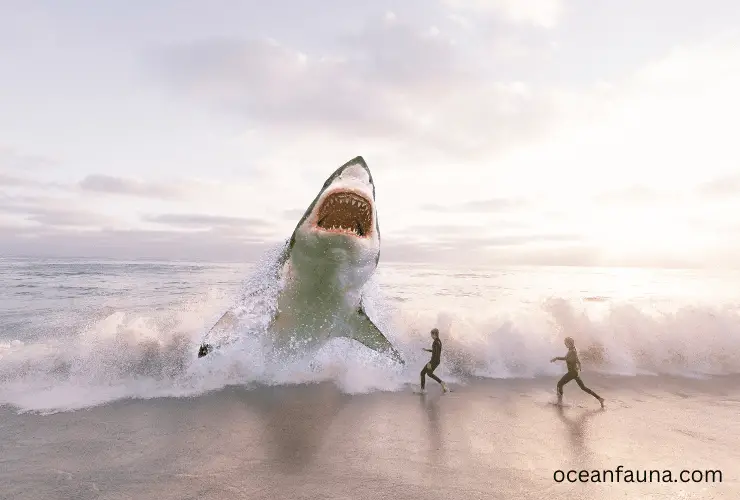No, there is no ocean without sharks since all the oceans are interconnected. Sharks tend to shift from one zone to another depending on environmental changes like temperature and food availability. So, it is almost impossible to find an ocean without sharks. Every ocean, including the Arctic Ocean, is home to some species of shark.
Now, you may be wondering which oceans have what types of sharks in them. Here I will provide answers to all your questions about this topic.
Does Every Ocean Have Sharks?
Yes, every ocean has some kind of shark. It is estimated that more than 1000 species of sharks roam the waters of all the oceans in the world. Some common types of oceanic sharks include Great White Shark, Tiger Shark, Bull Shark, Mako Shark, Hammerhead shark, and many more.
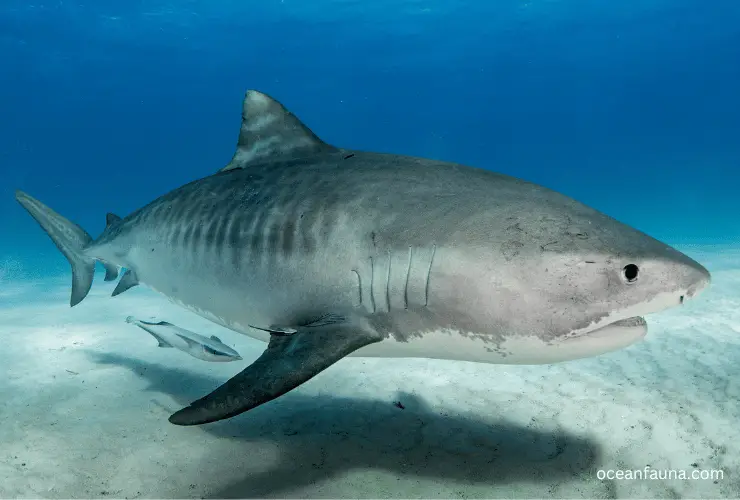
Here I will tell you how many oceans are there in the world and which shark species are available there.
How many oceans are there in the world? Although there are historically four oceans, a new ocean was recently identified. So, now five oceans are there. They are- the Pacific, Atlantic, Indian, Arctic, and Southern oceans (recent).
Are There Sharks in The Pacific Ocean?
There is a wide variety of sharks in the Pacific Ocean, from the Great White to the Hammerhead to the Tiger shark and even the Whale shark. Even though some sharks, like the Great White, are notorious for their aggressive tendencies, others, like the Whale sharks, are vegetarians. Sharks’ functions in preserving the stability of marine ecosystems are critical, regardless of their diversity in nutrition and lifestyle.
Swimming in shark-infested seas is risky, but you may reduce that danger by adhering to common sense safety practices like not swimming at dawn or dusk or staying away from places where sharks are known to congregate.
So, the Pacific Ocean is home to several shark species, and it is essential to marine ecosystems to safeguard these animals. (Here are more details about the relationship between sharks and the pacific ocean.)
Are There Sharks in The Atlantic Ocean?
Yes, there are sharks in the Atlantic Ocean. Around 43 species of sharks are there. The most common sharks of this ocean are – Bull Shark, Porbeagle Shark, Blue shark, Blacktip shark, Great White Shark, Hammerhead Shark, Lemon shark, Sandbar shark, Dogfish, Sharp-nosed shark, Basking shark, and a few others. Many of these sharks migrate seasonally between tropical and temperate waters following their prey or mating seasons.
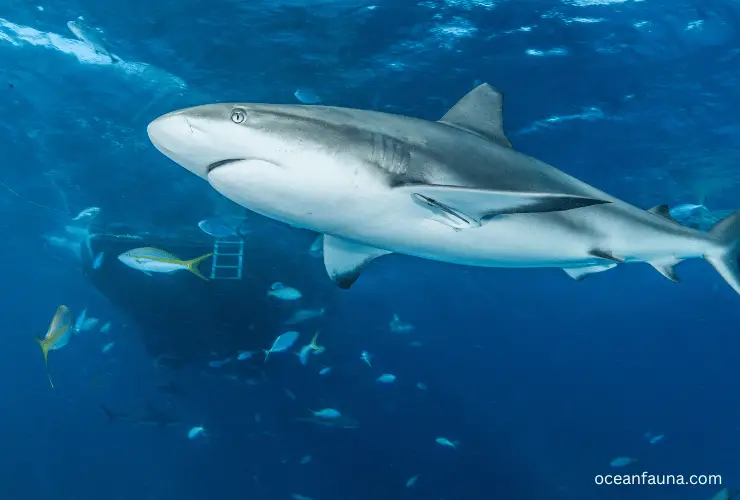
If you arrive here for swimming and diving, having proper safety knowledge is mandatory. Also, following some of the basic safety rules will help you to have a great time in these waters.
Are There Sharks in The Indian Ocean?
The Indian Ocean is home to a plethora of shark species, with 19 having been documented. Among them are the incredible Tiger Shark, Bull Shark, Dusky Shark and Hammerhead Sharks, as well as the imposing Great White Shark, Silky Sharks and Thresher Sharks – not forgetting the majestic Whale Shark! Their roaming range stretches from Australia and Indonesia on Eastern shores across Africa in Western waters up to Asia out Northwards down to Antarctic lands on Southern coasts.
The most important thing for swimmers and divers is to have proper knowledge of shark behavior and also follow some basic safety rules, like not swimming at dawn or dusk in places where sharks are known to congregate.
Are There Sharks in The Arctic Ocean?
You will be surprised to know that some sharks are in the Arctic Ocean. Although most of the sharks prefer quite warmer habitats, some of them are adapted to the colder temperatures. The most common species found in the Arctic Ocean are the Greenland Sharks, Salmon Sharks, Spiny Dogfish Sharks, Pacific Sleeper Sharks, and Porbeagle Sharks.
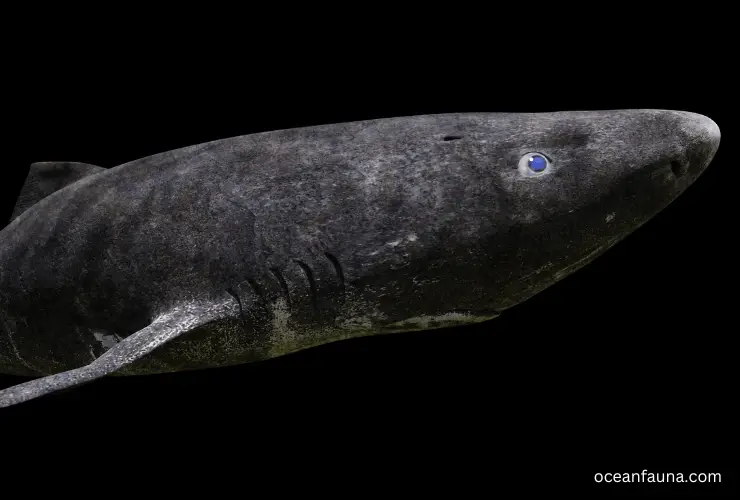
An interesting fact about these arctic shark species is they are both slow-moving and slow growing. Here the reason is the lack of food in this region. So, they grow up relatively small compared to other shark species.
Are There Sharks in The Southern Ocean?
Yes, some shark species are also there in the Southern Ocean. Sharks species are almost common in both the Arctic and Southern oceans since they are connected, and the water temperature is also cold. Greenland sharks are the most common species in the Southern Ocean.
However, some reports mentioned that southern sleeper sharks could also be found in this ocean zone. But more research is needed to confirm this.
So, now you know that there is no ocean where sharks are not present. But there are other smaller water zones, like the sea, where the presence of sharks can be minimal.
Is There a Sea Without Sharks?
Yes, there is a sea without sharks. One of the most well-known examples of a sharkless sea is the Dead Sea, located at the lowest point on earth between Israel and Jordan.
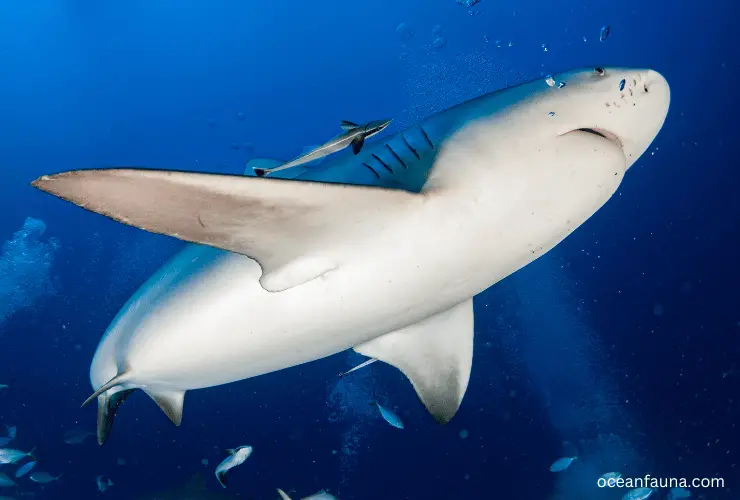
Unlike other saltwater bodies and oceans, due to its high salinity levels, it has not been able to sustain any shark species. The salt concentration in the Dead Sea is three times higher than that of most seas and oceans. And as such, it falls beyond the tolerance level for shark species as they are unable to survive in such a saline environment.
Other than the Dead Sea, there are also several lakes around the world where no shark presence has ever been recorded or reported. For example, Lake Titicaca, located in Peru and Bolivia, is home to various species of freshwater fish but not sharks.
Likewise, Lake Baikal in Russia doesn’t have any sharks present either. This is because these freshwater bodies lack enough oxygen for these creatures to live there.
Furthermore, some seas and oceans may also lack sharks due to human-led activities such as overfishing which reduces their food sources or pollutants that hinder their survival rates.
Therefore, even if sharks naturally inhabit certain waters, human interference can eventually make them disappear from those areas.
What Beach Has the Least Sharks?
The beaches in Connecticut are generally considered to be some of the most shark-free in the United States. The shallow waters and lack of a continental shelf make it an unfavorable habitat for sharks, as they prefer deeper, offshore waters.
Additionally, the Long Island Sound is well-known for having clear water, making it easy to spot predators like sharks early on. With this combination of factors, very few sharks are spotted on the area’s beaches.
Of all the beaches in Connecticut, Silver Sands State Park Beach is thought to have some of the lowest shark populations. This beach is located on Long Island Sound, and its protected cove provides shallow and calm waters that are not conducive to shark activity.
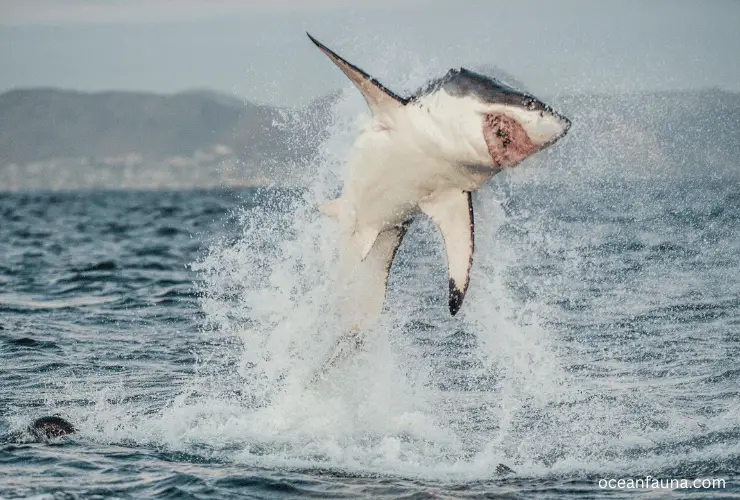
Silver Sands State Park Beach is known for its sandy bottom, which also discourages sharks from coming close to shore. Finally, because this beach is close to residential areas and has plenty of visitors during summer months, it makes sense that any potential predatory species would avoid these crowded shores.
What Happens to The Ocean Without Sharks?
Without sharks, the ocean ecosystem would suffer major disruptions. Sharks are essential to maintaining the health of coral reefs and other sea life. Without them, these habitats would become imbalanced and fragile, leading to a decline in the variety and number of aquatic species that live within them.
One major consequence of losing sharks is a decrease in biodiversity. Sharks have been essential predators at the top of marine food chains for millions of years, playing an integral role in regulating populations and preventing any one species from becoming too abundant.
For instance, when shark populations decline due to overfishing or habitat destruction, there can be an increase in prey species like stingrays or skates, which feed on the same organisms as their prey – thus leading to a decrease in overall food resources for other fish and invertebrates.
In addition, when apex predators like sharks are removed from an area, smaller predators may flourish unchecked, leading to the depletion of their prey species and loss of biodiversity.
Another consequence is that with fewer sharks around to control populations, it can lead to competition between fish species for resources like food and shelter. This could lead to larger fish outcompeting smaller ones which could cause more extinctions among smaller species as they lack the ability to compete against larger predators.
Furthermore, without these important top-level predators controlling the numbers of herbivores such as sea urchins or parrotfish, their population could increase, resulting in overgrazing – which leads to reef degradation and fewer fish living on coral reefs.
Finally, without sharks present, it can also lead to reduced water quality due to increased eutrophication caused by too many nutrients entering marine ecosystems – this then increases algae growth which depletes oxygen levels leading to a decrease in ocean clarity and habitat destruction for fishes that rely on clean water environments (e.g., clownfish).
As well as this, it could reduce coastal protection since some sharks play important roles as biological barriers preventing storm surge damage near shorelines – meaning that coastal communities could experience more destruction during storms without these necessary sea creatures providing protection from surges.
Would Humans Exist Without Sharks?
Whether humans would exist or not without sharks depends on how harshly their absence would impact the environment.
Sharks are essential to the health of our oceans and the planet as a whole. They keep key marine ecosystems in balance by controlling populations of prey species, such as fish or invertebrates, which form the base of the food chain. Without them, these populations can become overabundant or suffer from population crashes, which can devastate our aquatic environment.
Sharks are also essential for sustaining coral reefs, which help sustain healthy ocean habitats and provide refuge to numerous marine species that offer vital sustenance in coastal areas. If sharks were eliminated from the equation, these ecosystems would be beyond help.
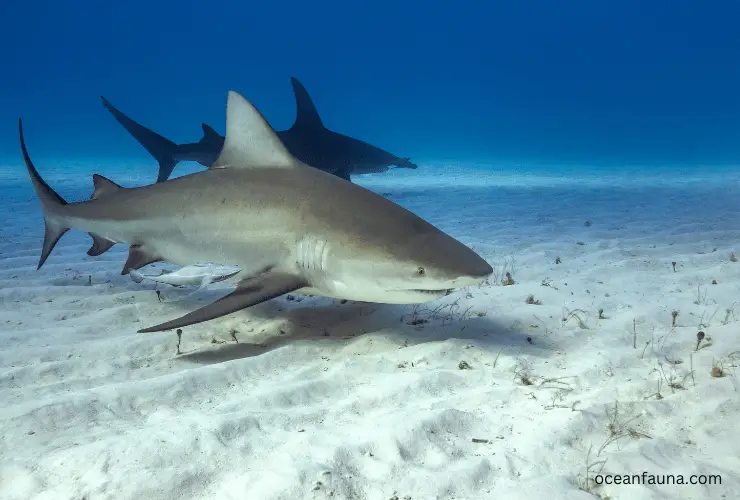
Unfortunately, human activities have put sharks at risk around the world. Overfishing is one major threat to shark populations due to commercial and recreational fishing pressure from humans. This has caused some shark species to decline dramatically in recent decades despite protection from international law.
Pollution from land-based activities has also had negative impacts on shark populations by increasing water temperatures and acidity levels that can disrupt their natural behaviors and make it harder for them to find food sources or breed successfully.
If these threats continue unchecked and unchecked, we could see a mass extinction of many shark species within our lifetime – some researchers predict that up to 50% of all shark populations could be lost by 2050 if current trends continue.
Conclusion
The omnipresence of sharks certainly reaches even the coldest bodies of water, such as those found in the Southern and Arctic oceans. No ocean on our planet exists without some species of shark establishing residency, making it clear that their habitats are widespread across anybody of saltwater large enough for them to call home.
However, some water zones, such as the Dead Sea, contain no sharks. Similarly, Connecticut’s beaches provide a very limited number of shark sightings.
Remember, if there are no sharks in the ocean, the ecosystem could not remain in balance, dramatically affecting our aquatic environment. So, we should try to protect shark populations and their homes by cutting down on overfishing and pollution caused by activities on land. Doing so would help ensure a healthy ocean for generations to come.

